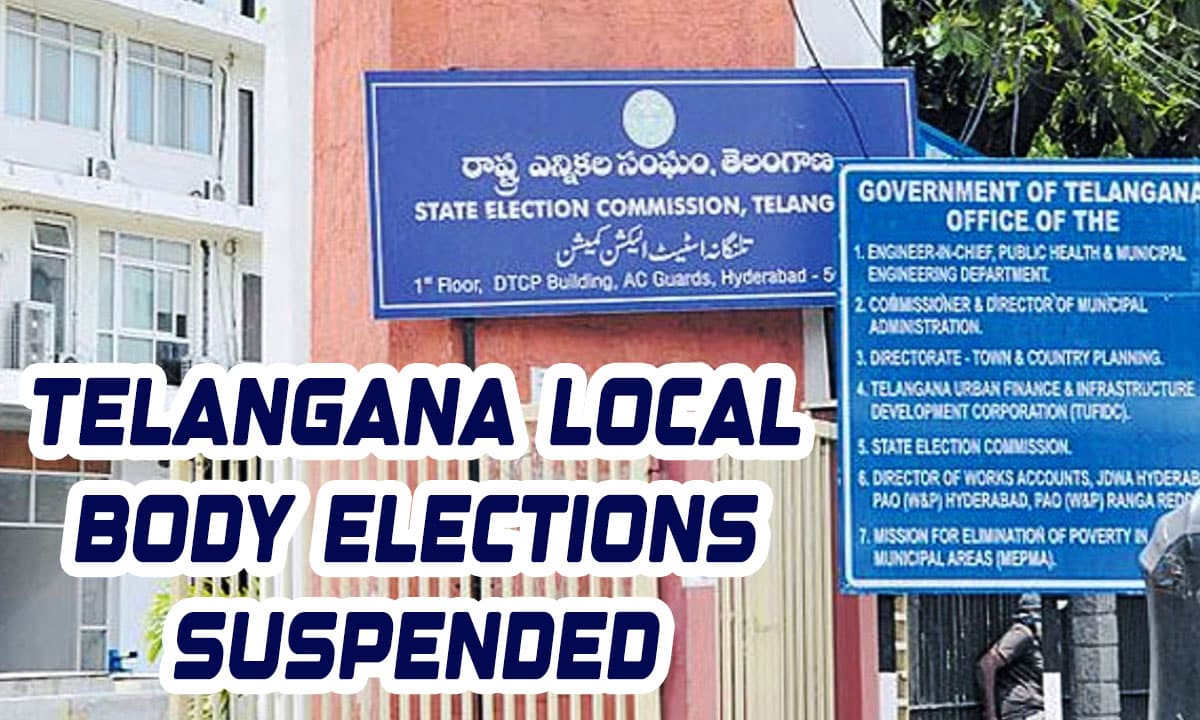Hyderabad: The Telangana State Election Commission (SEC) has officially suspended the ongoing local body election process following a High Court stay on the 42% reservation for Backward Classes (BCs). The gazette notification issued on September 29, which had set the elections in motion, has been kept in abeyance with immediate effect until further orders.
As a result, the Model Code of Conduct (MCC) and all processes related to ZPTC, MPTC, and Gram Panchayat elections, including nominations already filed, have been suspended. Earlier on Thursday, District Collectors had issued election notices for the first phase of ZPTC and MPTC polls, covering 58 revenue divisions across 31 districts. Nominations were scheduled from October 11, with polling set for October 23 and results expected on November 11. However, the High Court’s stay has put the entire process on hold.
Also Read: Mahesh Kumar Goud Vows to Ensure 42% Reservations for BCs, Slams BRS and BJP for Hypocrisy
Meanwhile, several BC unions staged protests outside the High Court, voicing their anger over the stay order. Activists alleged confrontations during the demonstrations, including incidents of “snatching mouth sticks.” BC organizations have warned that if the state government does not respond promptly, they may call for a statewide bandh to press for the implementation of reservations.
The SEC clarified that the election schedule will remain suspended until further notice from the commission in accordance with the High Court’s directions. Political leaders and citizens are now awaiting the court’s detailed order, which will determine the future course of the local body elections in Telangana.
This move comes amid a tense political climate, with parties and communities closely monitoring developments related to BC reservation and election timing, reflecting the sensitive nature of representation and justice in the state’s governance.
